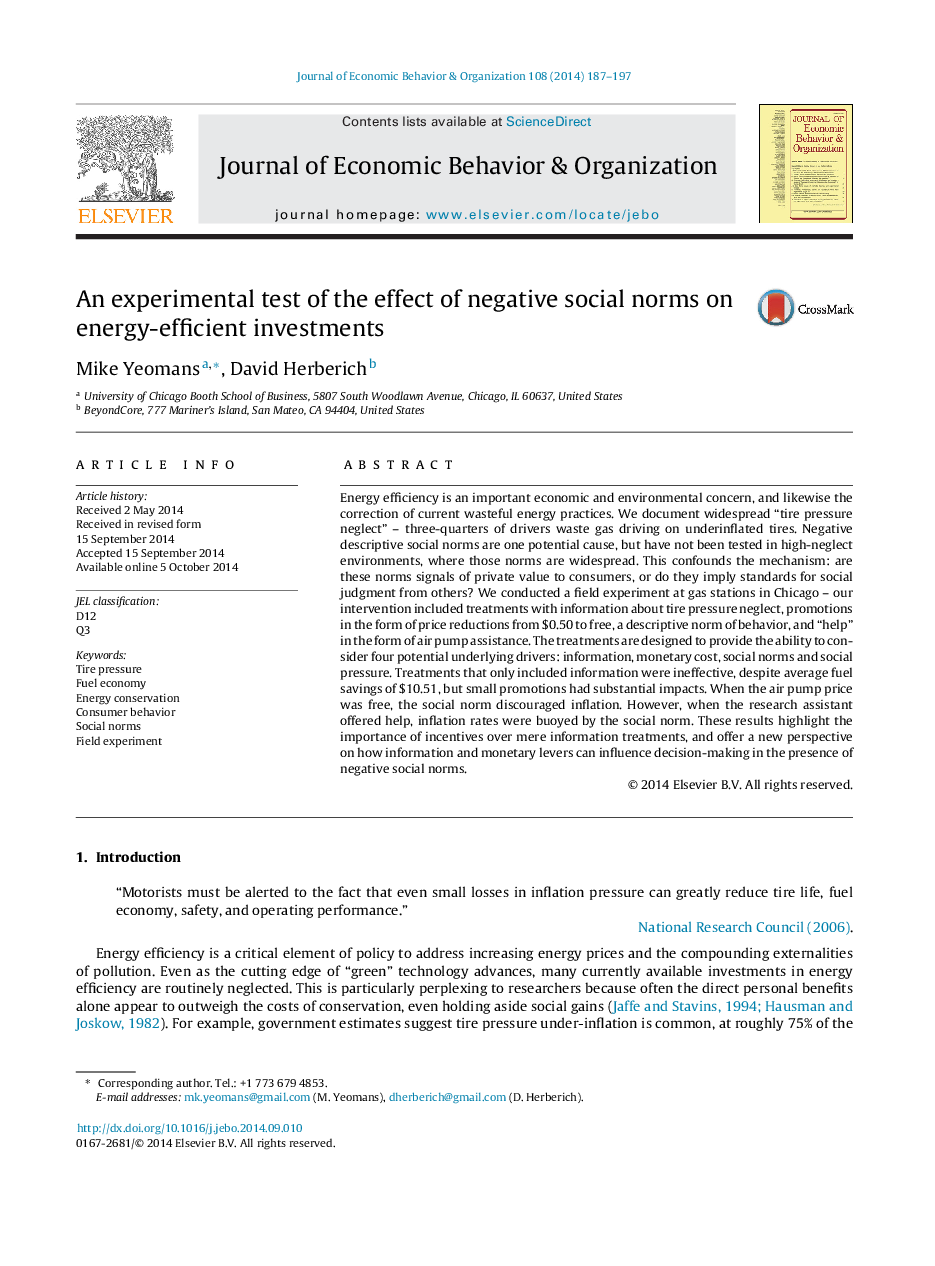| کد مقاله | کد نشریه | سال انتشار | مقاله انگلیسی | نسخه تمام متن |
|---|---|---|---|---|
| 7243418 | 1471656 | 2014 | 11 صفحه PDF | دانلود رایگان |
عنوان انگلیسی مقاله ISI
An experimental test of the effect of negative social norms on energy-efficient investments
ترجمه فارسی عنوان
یک آزمایش آزمایشی از تأثیر هنجارهای اجتماعی منفی در سرمایه گذاری های انرژی کارآمد
دانلود مقاله + سفارش ترجمه
دانلود مقاله ISI انگلیسی
رایگان برای ایرانیان
کلمات کلیدی
موضوعات مرتبط
علوم انسانی و اجتماعی
اقتصاد، اقتصادسنجی و امور مالی
اقتصاد و اقتصادسنجی
چکیده انگلیسی
Energy efficiency is an important economic and environmental concern, and likewise the correction of current wasteful energy practices. We document widespread “tire pressure neglect” - three-quarters of drivers waste gas driving on underinflated tires. Negative descriptive social norms are one potential cause, but have not been tested in high-neglect environments, where those norms are widespread. This confounds the mechanism: are these norms signals of private value to consumers, or do they imply standards for social judgment from others? We conducted a field experiment at gas stations in Chicago - our intervention included treatments with information about tire pressure neglect, promotions in the form of price reductions from $0.50 to free, a descriptive norm of behavior, and “help” in the form of air pump assistance. The treatments are designed to provide the ability to consider four potential underlying drivers: information, monetary cost, social norms and social pressure. Treatments that only included information were ineffective, despite average fuel savings of $10.51, but small promotions had substantial impacts. When the air pump price was free, the social norm discouraged inflation. However, when the research assistant offered help, inflation rates were buoyed by the social norm. These results highlight the importance of incentives over mere information treatments, and offer a new perspective on how information and monetary levers can influence decision-making in the presence of negative social norms.
ناشر
Database: Elsevier - ScienceDirect (ساینس دایرکت)
Journal: Journal of Economic Behavior & Organization - Volume 108, December 2014, Pages 187-197
Journal: Journal of Economic Behavior & Organization - Volume 108, December 2014, Pages 187-197
نویسندگان
Mike Yeomans, David Herberich,
